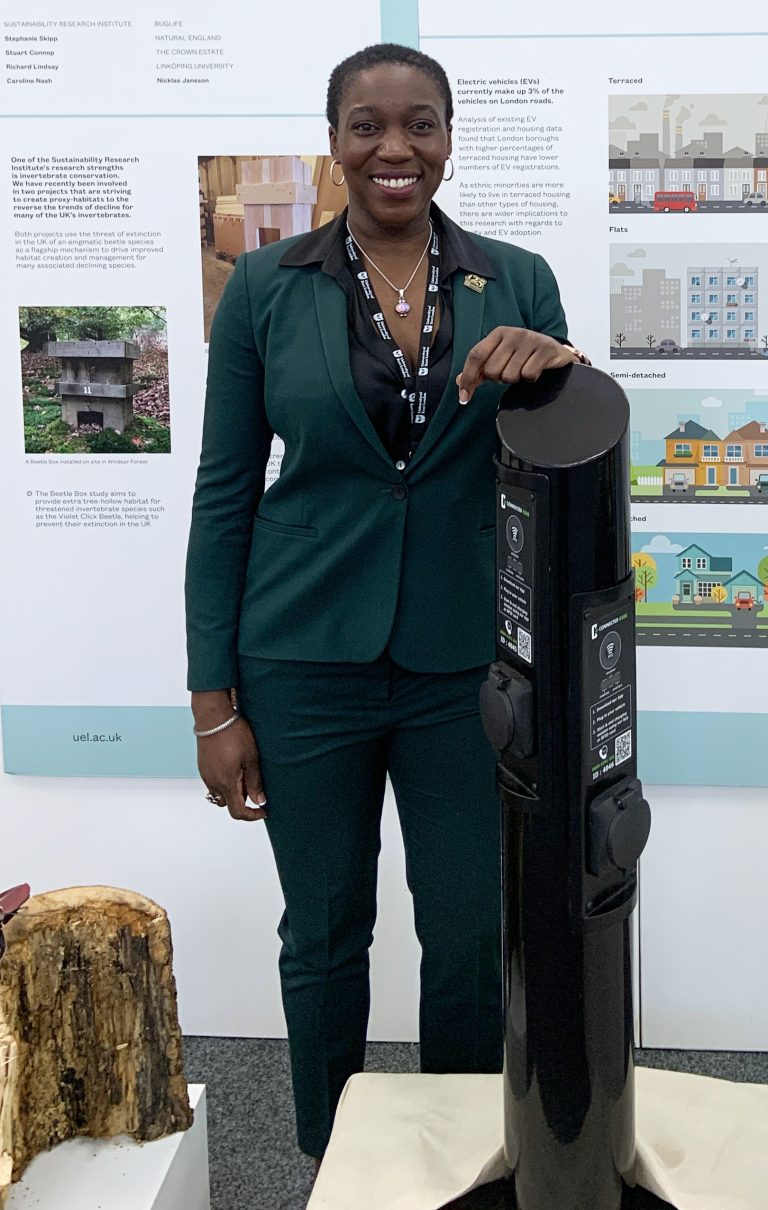About Me

Dr Shaherah Jordan is a sociologist with an interest in climate justice. She earned her PhD from the University of East London where her research explored culture as a factor in electric vehicle adoption and focused on the influence of the built environment, policy and culture. Her early career was spent in transport where her worked encompassed research, communications and stakeholder engagement for organisations such as Jacobs, London 2012 and Transport for London.
She has presented at the Behaviour Energy and Climate Change (BECC) conference, SEEDS and the Electric Vehicle Conference at Edinburgh Napier University. In addition to this she is also invited to guest lecture and speak at various organisations.
Shaherah has also undertaken research projects for Bank of America Merrill Lynch and the Design Council. In addition to her work in sustainability, Shaherah also serves as an Independent Non-Executive Director (INED) for British Wrestling.
She currently works for leading renewable energy company, Innova, as their Communities Manager.
Things I've Done
PUBLICATIONS
‘The Impact of Public Charging Infrastructure on the Adoption of Electric Vehicles in London’, Selected Proceedings from the International Conference of Sustainable Ecological Engineering Design for Society (SEEDS) 2019
The discussion on the importance of public charging infrastructure is usually framed around the ‘chicken-egg’ challenge of consumers feeling reluctant to purchase without the necessary infrastructure and policy makers reluctant to invest in the infrastructure without the demand. However, public charging infrastructure may be more crucial to EV adoption than previously thought.
Using a statistical approach with data from the Department for Transport and Zap Map, a statistically significant correlation was found between the total (slow, fast and rapid) number of public charging points and number of EV registrations per borough—with the strongest correlation found between EV registrations and rapid chargers.
This research does not explicitly prove that there is a cause-and-effect relationship between public charging points EVs but challenges some of the previous literature which indicates that public charging infrastructure is not as important as home charging. The study also supports the notion that the built environment can influence human behaviour.
Available here: http://tinyurl.com/2p89xdac
Carrot or Stick? How Policy Type Influences Consumer Intention to Purchase Electric Vehicles, Transportation Research Procedia, Volume 70, 2023, Pages 13-19, ISSN 2352-1465, https://doi.org/10.1016/j.trpro.2023.10.003.
The potential for widespread electric vehicle adoption is contingent on the effectiveness of policy interventions. The types of potential policy interventions that governments can implement are seemingly wide ranging but are effectively a core set of policy functions that are implemented in the way that is most appropriate for the area in question. Policy makers need to take into account the different types of responses that may be triggered as a result of an intervention. Due to the novelty of EVs, assumptions need to be made about consumer attitudes and behaviour in order to establish policies with the intention of encourage growth. Previous research indicates that policy interventions that people are more likely to respond favourably to policy interventions that incentivize rather than those that disincentivise. Analysis of responses to planned and existing policy interventions in London supports this insight.
Available here: https://www.sciencedirect.com/science/article/pii/S2352146523002776
